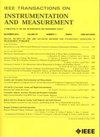Decoupling Method of Triaxial Magnetic Field Compensation and Multiparameter Measurement in Comagnetometers
IF 5.6
2区 工程技术
Q1 ENGINEERING, ELECTRICAL & ELECTRONIC
IEEE Transactions on Instrumentation and Measurement
Pub Date : 2025-04-30
DOI:10.1109/TIM.2025.3565777
引用次数: 0
Abstract
Spin-exchange relaxation-free (SERF) comagnetometers possess considerable potential for applications in fundamental physics research and inertial navigation. Operating comagnetometers at the magnetic field compensation point and performing multiparameter measurement are fundamental to reducing the magnetic noise and maintaining high performance. However, the crosstalk among the triaxial magnetic fields diminishes the effectiveness and accuracy of magnetic field compensation and multiparameter measurement. To address this limitation, we propose a novel method for in situ rapid and accurate magnetic field compensation and multiparameter measurement. The decoupling of the triaxial magnetic fields, achieved experimentally through first-order and second-order approximations based on the modulation dynamics of coupled electronic-nuclear spins, enables the direct determination of the magnetic field compensation point. Additionally, the method facilitates the derivation of both the scale factor and the electronic spin relaxation rate. The proposed method addresses the issue of triaxial magnetic field coupling, enhancing the accuracy and efficiency of magnetic compensation and multiparameter measurement. The proposed method saves more than 70% time compared to the nondecoupled method, maintaining magnetic field compensation accuracy within 0.2 nT. It demonstrates promising potential for precise magnetic field manipulation and real-time closed-loop control of comagnetometers.磁强计三轴磁场补偿与多参数测量的解耦方法
自旋交换无弛豫(SERF)磁强计在基础物理研究和惯性导航方面具有巨大的应用潜力。在磁场补偿点操作磁强计并进行多参数测量是降低磁噪声和保持高性能的基础。然而,三轴磁场之间的串扰降低了磁场补偿和多参数测量的有效性和精度。为了解决这一问题,我们提出了一种快速准确的现场磁场补偿和多参数测量的新方法。通过基于耦合电子-核自旋调制动力学的一阶和二阶近似实验实现了三轴磁场的解耦,从而可以直接确定磁场补偿点。此外,该方法有利于尺度因子和电子自旋弛豫速率的推导。该方法解决了三轴磁场耦合问题,提高了磁补偿和多参数测量的精度和效率。与非解耦方法相比,该方法节省了70%以上的时间,并将磁场补偿精度保持在0.2 nT以内,在磁强计的精确磁场操纵和实时闭环控制方面具有广阔的应用前景。
本文章由计算机程序翻译,如有差异,请以英文原文为准。
求助全文
约1分钟内获得全文
求助全文
来源期刊

IEEE Transactions on Instrumentation and Measurement
工程技术-工程:电子与电气
CiteScore
9.00
自引率
23.20%
发文量
1294
审稿时长
3.9 months
期刊介绍:
Papers are sought that address innovative solutions to the development and use of electrical and electronic instruments and equipment to measure, monitor and/or record physical phenomena for the purpose of advancing measurement science, methods, functionality and applications. The scope of these papers may encompass: (1) theory, methodology, and practice of measurement; (2) design, development and evaluation of instrumentation and measurement systems and components used in generating, acquiring, conditioning and processing signals; (3) analysis, representation, display, and preservation of the information obtained from a set of measurements; and (4) scientific and technical support to establishment and maintenance of technical standards in the field of Instrumentation and Measurement.
 求助内容:
求助内容: 应助结果提醒方式:
应助结果提醒方式:


